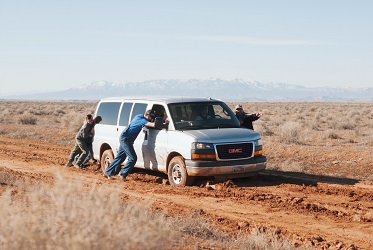
The book of Judges records 12 judges (13 if you count Abimelech, who is seen by many as an outlaw and not a judge raised up by God). Each one has a story to tell and holds a place in God’s purpose for their generation and some of them have lessons that touch us today.
Take Deborah for instance (4:1-5:31).
Deborah’s story is the second detailed deliverance narrative and the pivotal moment takes place in the Valley of Jezreel against King Jabin who ruled from Hazor and commanded 900 iron chariots (the iron was likely in the axel, spokes and hardware, the rest was wood). Hazor was the largest city in Palestine at that time and chariots were something the Israelites did not have. To put it into modern terms, they were going up against 900 tanks armed only with handguns.
Due to the runoff from surrounding hills and mountains, the valley of Jezreel’s soil is great for planting crops. And yet, due to that same runoff, this valley’s soil is so soft that when you add enough water (like during the rains and floods of winter) a chariot could easily get stuck in the mud, which is likely why Sisera abandoned his chariot to flee on foot (4:15). The International Standard Bible Encyclopedia states that heavy rains could transform the whole valley into a sea of mud making it “almost impossible” to move across it. Is this mud issue also the reason why Elijah told King Ahab to quickly get in his chariot and hurry to Jezreel so that he would not be stopped by the coming rain (1 Kings 18:44)?
This same valley hosted a battle between the Turks and British in 1917 during World War 1. General Allenby kept delaying any advance against the Turks. Months passed and his troops grew restless. When asked what he was waiting for he simply replied, “Deborah.” It wasn’t until the rainy season was over and the grounds had dried that he took his heavy war machines into the valley. His knowledge of Deborah’s story secured the victory for him. Finally, there is another battle that will happen on this site. Revelation 16 calls it Armageddon. Interesting stuff, eh?
Let’s move on to Gideon for a moment. There are so many things we can learn from him, but let me just highlight one. In Judges 6:7, we hear the familiar prayer, asking God to rescue them. Based on past actions, we can be sure that the answer they expected had to do with God bringing the victory through a great warrior. They reasoned that if God could easily route 900 chariots, He could do the same with a horde of Midianites, right? Well, they asked for help, expected a warrior and got…a prophet!
God’s response to their cry was to give them His word. Gideon’s question was one that was on everyone’s mind. “If the Lord is with us, why has all this happened to us? Where are all his wonders that our fathers told us about…” (6:13)? Where are you, Lord? How long, O Lord? The same question we ask has been asked for millennia. It makes me wonder, how many times does God answer us the same way He answered them, with His word?
Scripture teaches that God’s promises, and not our circumstances, define what is true for us. This is the reason Paul says that even though we face death all day long—even though we face trouble, hardship, persecution, famine, nakedness, danger or sword, even though our lives look like we are sheep about to be slaughtered—in reality, through Jesus Christ, we are more than conquerors (Romans 8:28-39). God’s love-bound, eternal promises always triumph over our trial-filled, temporal circumstances.
Like us, Gideon felt weak and powerless to address his massive problem before him. Even so, he was told to “Go in the strength you have…” (6:14). Said in other words, he was told to apply what God has promised with the strength and resources you already have and watch what happens.
Sit quietly before the Lord for 60 seconds and ask Him to bring to your mind a challenge that you face. What begins to surface? Take a moment to identify what it is and become aware of your inner response to it (fear, dread, fatigue at dealing with it, etc). Write these thoughts on a piece of paper. Now, ask the Lord to show you what He wants you to know from His word and express your desire to live by what He has already said. Every morning and night, review what you wrote down. Then go through each day keeping your eyes open for God’s answer.
God is aware of your need. He has already responded with promises that relate to whatever it is you are facing. He is now waiting. It could be that He is waiting for the ground to dry, for your heart to soften, for your mind to more fully embrace, or for His purposes to more completely align. We don’t know why He waits, but while He waits, we wait by using whatever little strength we have to apply the promises God has already given, watching in faith for what God will do.
They asked for a warrior and got a prophet. What word is God giving you today? Enjoying, and being challenged by, the journey with you.

Rob






